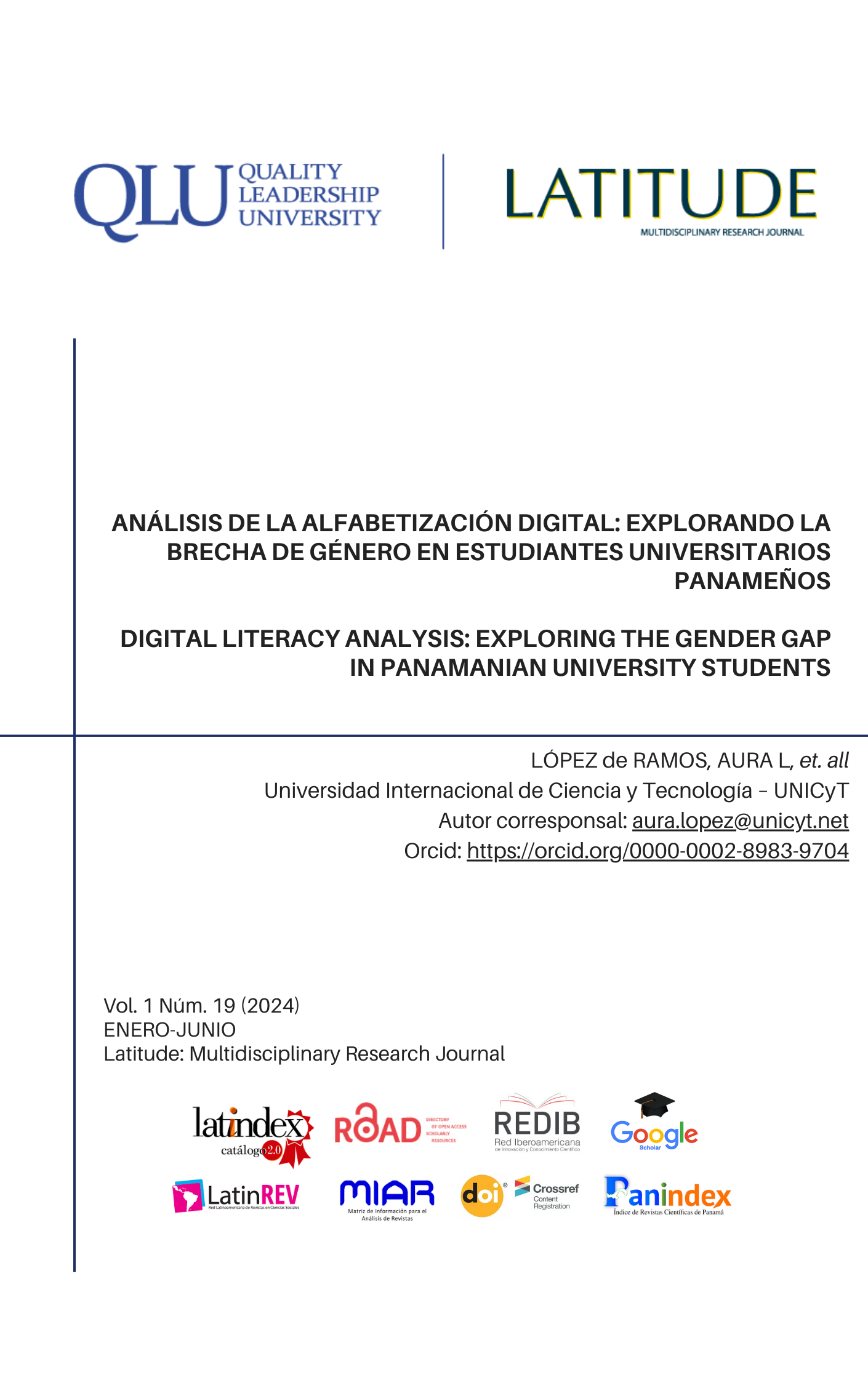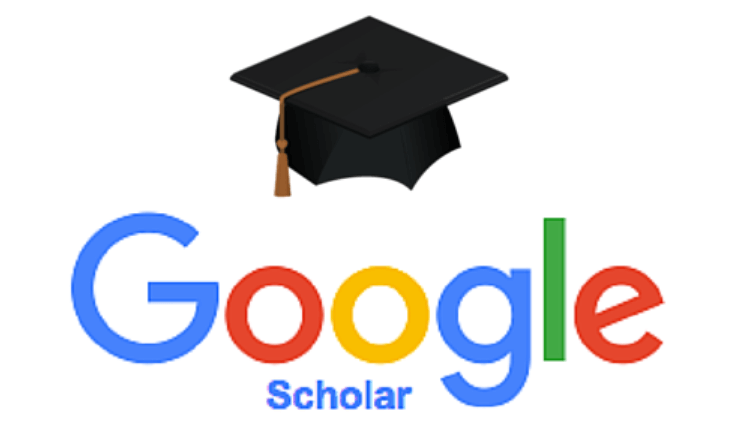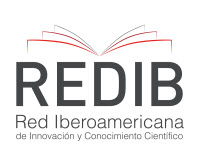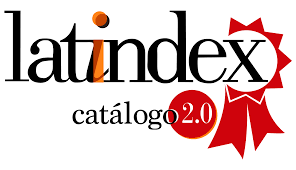

This work is licensed under a Creative Commons Attribution-NonCommercial-ShareAlike 4.0 International License.
Esta obra está bajo licencia internacional https://creativecommons.org/licenses/by-nc-sa/4.0/deed.es
La revista (y sus contenidos) emplean las licencias Creative Commons, específicamente la del tipo CC BY NC SA 4.0, la cual establece que “el beneficiario de la licencia tiene el derecho de copiar, distribuir, exhibir y representar la obra y hacer obras derivadas siempre y cuando reconozca y cite la obra de la forma especificada por el autor o el licenciante”. La licencia del tipo CC BY NC SA 4.0 contempla tres categorías,
- Atribución.
- No Comercialización de la obra.
- Compartir igual
Los lectores son libres de:
- Compartir — copiar y redistribuir el material en cualquier medio o formato
- Adaptar — remezclar, transformar y construir a partir del materialLa licenciante no puede revocar estas libertades en tanto usted siga los términos de la licencia
- Siempre y cuando se respeten y contemplen la atribución de autoría y la no comercialización del material.
Abstract
This study examined the technological and ethical profile of university students in Panama. The sample of 367 students revealed demographic and academic diversity. Most balanced work and study, preferring smartphones for internet access. Gender differences were noted in device choices. While the use of technological tools was common, digital ethics showed relatively low competence, particularly in source attribution. The conclusions underscore the need for educational strategies to promote ethical technology use, emphasizing the importance of considering these dimensions in academic program design. This study contributes to understanding the technological and ethical landscape in university settings, guiding policies and pedagogical practices in the digital era.
Keywords:
References
Acilar, A. & Sæbø, Ø. (2023), Towards understanding the gender digital divide: a systematic literature review, Global Knowledge, Memory and Communication, 72(3), 233-249. https://doi-org.abc.remotexs.co/10.1108/GKMC-09-2021-0147
Ali, A.; Ali Raza, A.; Ayyub Qazi, I. (2023). Validated digital literacy measures for populations with low levels of internet experiences. Development Engineering, 8, 100107. https://doi.org/10.1016/j.deveng.2023.100107
Antonio, A., & Tuffley, D. (2014). The gender digital divide in developing countries. Future Internet, 6(4), 673-687.
Arredondo Trapero, F. G., Vázquez Parra, J. C., & Velázquez Sánchez, L: M. (2019). STEM y brecha de género en Latinoamérica. Revista de El Colegio de San Luis, 9(18), 137-158.
https://www.scielo.org.mx/scielo.php?pid=S1665-899X2019000100137&script=sci_abstract&tlng=en
Benito-Pregrina, A. (2007). La alfabetización digital y tecnológica. Las nuevas formas de exclusión social. Diálogo, (269), 28-40.
Comisión Económica para América Latina y el Caribe [Cepal]. (2020, 24 de agosto). La Cepal y la Unesco publican documento que analiza los desafíos para la educación que ha traído la pandemia en América Latina y el Caribe. Cepal. https://www.cepal.org/es/comunicados/la-cepal-la-unesco-publican-documento-que-analiza-desafios-la-educacion-que-ha-traido-la
Cortina-Pérez, B.; Gallardo-Vigil, M. A.; Jiménez-Jiménez, M.A. & Trujillo-Torres, J. M. (2014) Digital illiteracy: a challenge for 21st century teachers / El analfabetismo digital: un reto de los docentes del siglo XXI, Culture and Education, 26(2), 231-264. https://doi.org/10.1080/11356405.2014.935108
Da´Agostino, M.; Veiga de Cabo, M. & Sanz Valero, J. (2017). Alfabetización Digital: un peldaño hacia la sociedad de la información. Medicina y Seguridad del Trabajo, 54(210), 11-15.
Deschenes, A. (2024). Digital literacy, the use of collaborative technologies, and perceived social proximity in a hybrid work environment. Technology as a social binder. 13, 100351. https://doi.org/10.1016/j.chbr.2023.100351
Figueiredo, H., Biscaia, R., Rocha, V., & Teixeira, P. (2017). Should we start worrying? Mass higher education, skill demand and the increasingly complex landscape of young graduates’ employment. Studies in Higher Education, 42(8), 1401-1420.
García-Ávila, S. (2017). Alfabetización Digital. Razón y Palabra, 21(3_98), 66–81. https://www.revistarazonypalabra.org/index.php/ryp/article/view/1043
García-Martínez, J.A.; Santos-Caamaño, F.J.; Muñoz-Carril, P. C. & González Sanmamed, M. (2021) Análisis de los Recursos Tecnológicos que Utiliza el Alumnado Universitario de Estudios de Educación, American Journal of Distance Education, 35(2), 152-167. https://doi.org/10.1080/08923647.2021.1913786
Grant, C. (2023). Building girls’ confidence in digital literacies at tech camp. Computers and Composition, 68, 102773. https://doi.org/10.1016/j.compcom.2023.102773
Gutiérrez Martín, A. (2003). Alfabetización digital. Algo más que ratones y teclas. Gedisa. https://bit.ly/3s5Ypze
Hewlett, S. A., Luce, C. B., Servon, L. J., Sherbin, L., Shiller, P., Sosnovich, E., & Sumberg, K. (2008). The Athena factor: Reversing the brain drain in science, engineering, and technology. Harvard Business Review Research Report.
León, M., López de Ramos, A., Mapp, U., Reyes, S., Suárez, M., Pacheco, A., Rangel, V., De Las Salas, M., & Carrasquero, E. (2021). Evaluación de plataformas de aprendizaje virtual usadas en universidades de Panamá. Investigación Y Pensamiento Crítico, 9(1), 46–61. https://doi.org/10.37387/ipc.v9i1.210
Lilian, A. (2022). Motivational beliefs, an important contrivance in elevating digital literacy among university students. Heliyon, 8, e11913. https://doi.org/10.1016/j.heliyon.2022.e11913
Long, T.; Hoang, T.; Simkins, B. (2023). Gender gap in digital literacy across generations: Evidence from Indonesia. Finance Research Letters, 58, 104588. https://doi.org/10.1016/j.frl.2023.104588
López de Ramos, A. Casado Robles, E. & González Sevillano, U. (2021). Evaluación del nivel de alfabetización digital de estudiantes de dos universidades particulares de Panamá. Actas del VI Congreso de Investigación, Desarrollo e Innovación de la Universidad Internacional de Ciencia y Tecnología (IDI-UNICyT 2021), 636-656. https://doi.org/10.47300/978-9962-738-04-6
López de Ramos, A. L.; Casado Robles, E; González Sevillano, U.; Suárez, M.; Álvarez Franco, A. M. & Cáceres, A. (2022). Influencia de género en la alfabetización digital de estudiantes universitarios: caso de 4 universidades panameñas. Actas del VII Congreso de Investigación, Desarrollo e Innovación de la Universidad Internacional de Ciencia y Tecnología (IDI-UNICyT 2022), 160-165. https://doi.org/10.47300/actasidi-unicyt-2022-25
López de Ramos, A. (2023). Influencia del género en el uso de redes sociales virtuales en estudiantes universitarios. Congreso Nacional de Ciencia y Tecnología – APANAC. (sep. 2023), 253-258. DOI:https://doi.org/10.33412/apanac.2023.3944.
Mariscal, J., Mayne, G., Aneja, U., & Sorgner, A. (2019). Bridging the gender digital gap. Economics,13(1), 1-13. http://dx.doi.org/10.5018/economics-ejournal.ja.2019-9
Maceviciute, E.; Manzuch, Z. & Gudinavicius, A. (2023). The role of curiosity triggers and features in digital literacy training. Library and Information Science Research, 45, 101268. https://doi.org/10.1016/j.lisr.2023.101268
Morgan, A.; Sibson, R. & Jackson, D. (2022). Digital demand and digital deficit: conceptualising digital literacy and gauging proficiency among higher education’s students. Journal of Higher Education Policy and Management, 44(39). https://doi.org/10.1080/1360080X.2022.2030275
Pawluczuk, A.; Lee, J. & Munyaradzi Gamundani, A. (2021). Bridging the gender digital divide: an analysis of existing guidance for gender digital inclusion programmes’ evaluations. Digital Policy, Regulation and Governance Journal, 23(3), 287-299. http://dx.doi.org/10.1108/DPRG-11-2020-0158
Pérez-Escoda, A., Lena Acebo, F. J., & García-Ruiz, R. (2021). Brecha digital de género y competencia digital entre estudiantes universitarios. Aula Abierta, 50(1), 505-514.
Pérez Zúñiga, R., Mercado Lozano, P., Martínez García, M., Mena Hernández, E., & Partida Ibarra, J. Á. (2018). La sociedad del conocimiento y la sociedad de la información como la piedra angular en la innovación tecnológica educativa. RIDE. Revista Iberoamericana para la Investigación y el Desarrollo Educativo, 8(16), 847-870.
Quiroz, J. S. & Fernández-Sánchez, M. R. (2022). Evaluación de la competencia digital de futuros docentes desde una perspectiva de género. RIED. Revista Iberoamericana de Educación a Distancia, 25(2), 327-342.
https://www.redalyc.org/journal/3314/331470794016/331470794016.pdf
Sillero, S. M., & Hernández, C. G. (2019). Libro Blanco de las mujeres en el ámbito tecnológico. Ministerio de Economía y Empresa, Secretaría de Estado para el Avance Digital. https://informatica.ucm.es/data/cont/media/www/pag-129213/LibroBlancoMujeres.pdf
Stoilescu, D., & McDougall, D. (2011). Gender digital divide and challenges in undergraduate computer science programs. Canadian Journal of Education/Revue Canadienne de L'Éducation, 34(1), 308-333.
Pawluczuk, A.; Lee, J. and Munyaradzi Gamundani, A. (2021). Bridging the gender digital divide: an analysis of existing guidance for gender digital inclusion programmes’ evaluations. Digital Policy, Regulation and Governance Journal, 23(3), 287-299. http://dx.doi.org/10.1108/DPRG-11-2020-0158
Ramírez, J.; González, F. & López de Ramos, A. L. (2019). Desarrollo de un instrumento de recolección de datos para la evaluación del nivel de alfabetización digital de estudiantes universitarios. Revista de Iniciación Científica (RIC), 5(2), pp. 59-71. https://doi.org/10.33412/rev-ric.v5.2.2506
Reddy, P.; Chaudhary, K. & Hussein, S. (2023). A digital literacy model to narrow the digital literacy skills gap. Heliyon, 9, e14878. https://doi.org/10.1016/j.heliyon.2023.e14878
Ríos Cabrera, P. (2017). Metodología de la Investigación. Un enfoque pedagógico. Editorial Cognitus.
Tham, K.; Burnhama, K.; Hocutt, D.; Ranade, N.; Misak, J.; Duin. A.; Pedersen, I. & Campbell, J. (2021). Metaphors, Mental Models, and Multiplicity: Understanding Student Perception of Digital Literacy. Computers and Composition, 59, 102628. https://doi.org/10.1016/j.compcom.2021.102628
Ylipulli, J.; Pouke, M.; Ehrenberg, N.; Keinonen, T. (2023). Public libraries as a partner in digital innovation project: Designing a virtual reality experience to support digital literacy. Future Generation Computer Systems, 149, 594–605. https://doi.org/10.1016/j.future.2023.08.001
 https://scholar.google.com/citations?hl=en&user=Euqf5h8AAAAJ
https://scholar.google.com/citations?hl=en&user=Euqf5h8AAAAJ
















